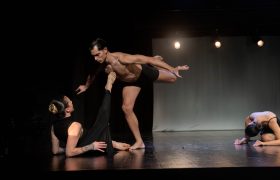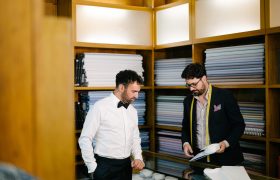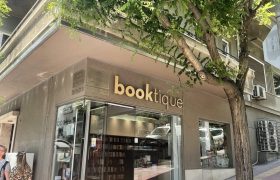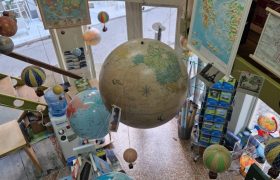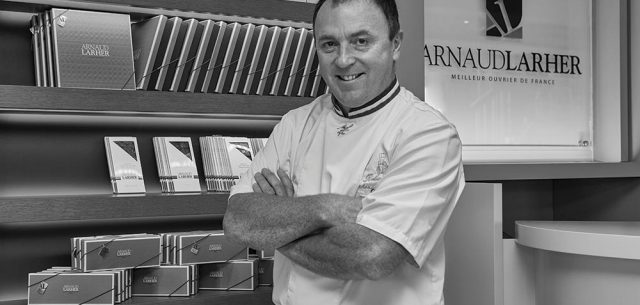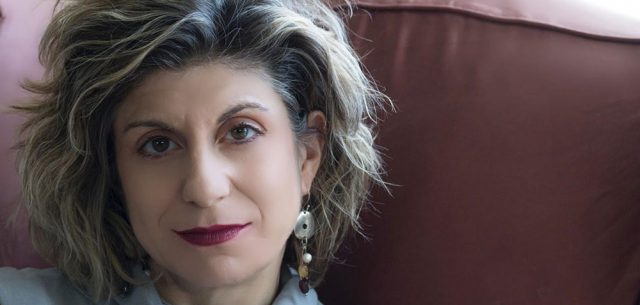Eleni Mylonas: “Greeks are a World-Class Puzzle”
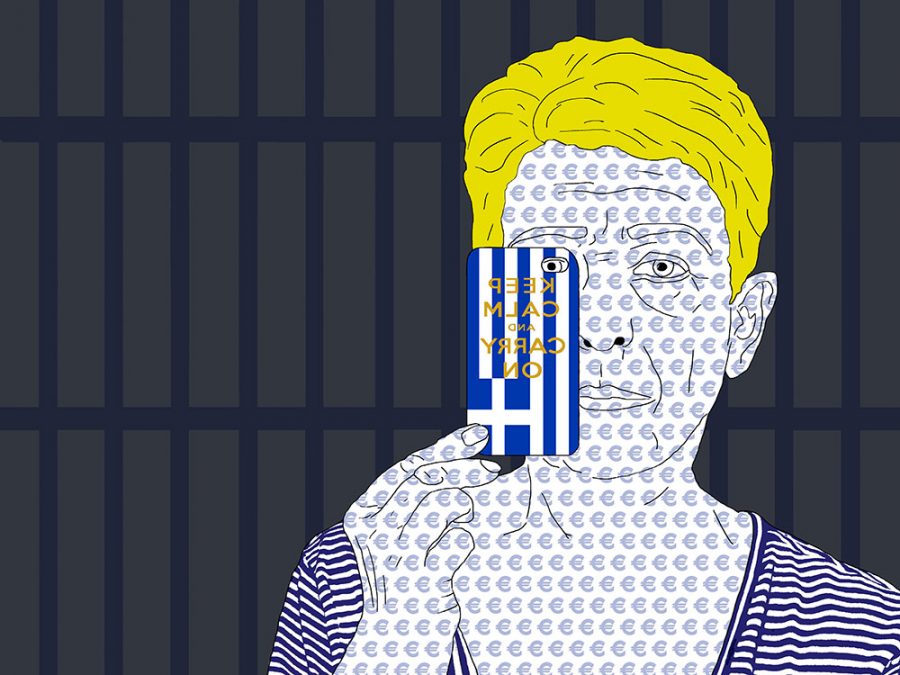
Stella Sevastopoulos catches up with one of Greece’s most avant-garde of creative souls, Eleni Mylonas, ahead of her confronting new Athens show.
The apple doesn’t fall far from the tree. Eleni Mylonas’ mother Alex Mylona was herself a cutting-edge spirit who represented Greece at the Venice Biennale in the ‘60s and whose modernist sculptural forms were praised by the great British art critic Herbert Read. (Alex Mylona passed away this year but her work can still be admired at the Alex Mylona Museum in Psyrri).
Born in Greece in 1944, Eleni Mylonas spread her wings to New York, where she gained an MA in journalism, before continuing with photographic studies in London in the early 70s. Later, in the ‘90s, Mylonas’s focus evolved to art and digital imaging back in New York.
Her nomadic spirit has led her to prioritise travelling for her art – even driving from London to Afghanistan and back in 1972. Her base is New York, but also Athens, and Aegina. Mylonas’ large-scale photographs from the ‘Journey Through Ellis Island’ series are part of the Ellis Island Museum’s permanent collection, while here in Greece, her video of a bloated/drowned sheep entitled ‘The Lamb of God’, was the parting work of ‘Destroy Athens’ – the first Athens Biennale (2007). Her works were featured in the 3rd Biennale of Thessaloniki, while in 2014 her ‘Cursed Serpent’ exhibition was shown at the Benaki Museum. In Germany, Mylonas exhibits at Munich’s Francoise Heitsch Gallery, which also represents her regularly at Art Athina.
Can you tell us about your appearance in the National Museum of Contemporary Art’s new show?
It’s a collaboration between the National Museum of Contemporary Art in Athens (EMST) and the Museum of Contemporary Art in Antwerp (M HKA), organized into 22 dialogues, each one between 3 artists: a Greek, a Belgian and an international artist. All works are drawn from the two museums’ collections. The show, on a smaller scale, will later travel to Antwerp . I am very much looking forward to seeing my works in dialogue with the works of other artiststs.
Your work was also to be featured in Turkey’s Canakkale Biennale in September, but sadly this event was cancelled, due to the Turkish State’s attempt to curb artistic freedom.
Yes, I had been working on a three-screen video piece entitled ‘Ave Maria’ for the Canakkale Biennale on and off through the summer. The theme of the show was sensitive: ‘Homeland’. After the Turkish coup and anti-coup, things were very uncertain but the preparations for the show continued in full swing. The email concerning the forced resignation of the director and chief curator Beral Marda and the cancellation of the exhibition came only three weeks before the opening. Shocking news, though sadly not entirely unexpected.
You live and work in New York, but also in Greece. Let’s reverse the tables a bit: what are the problems of living in New York, and what are the benefits of living in Greece?
Obviously this is the place of my birth, where I grew up and this in itself is a huge advantage. The land, the sea, the food, are all plusses for Greece. It’s harder to find the negatives of life in NY especially since I have managed to divide my time between the two, so by the time I start to miss Greece’s natural beauty, it’s time to go back. Bottom line: In NY I am in control of my life. In Greece I am not. A major factor is the prevailing political system in each place. But the US elections might change things for both countries…
If you had to choose one country or the other?
I would choose the one that offers me the most freedom. Above all, freedom.
How would you describe the contemporary Greeks?
This is a very broad question so I have to generalize. It seems to me that the Greeks today suffer from years of abusive, incompetent, punishing and absurd governments. Abused people become abusers themselves. I think the majority of Greeks feel lost. They have been lied to too often. They are forced by the system to cheat. They have lost respect for their work, themselves, each other, their leaders. They are insecure, suspicious, anxious, scared. They do not seem conscious of the environment and the beauty that surrounds them. Free enterprise is not encouraged so too many people have learned to depend on a check from a government job. Having said all that, I have to add that the Greeks are primarily survivors, they are resilient, quick learners, and in spite of all the difficulties they encounter through bad governance they do enjoy life like few other people, and that’s contagious!
How much did your mother inspire you? The fact that all three of her children followed an artistic path, certainly says something.
My mother was an extraordinary woman. A pioneer, a trailblazer, courageous, intelligent, single-minded, independent, self-assured, a wonderful artist. But you did not want to mess with her. This made for a difficult childhood. There was not much mothering. Luckily I got the message early and stayed out of her way. I was her second child so I had the advantage of learning, via my sister, what NOT to do.
Greece has its problems, but through your work, one also sees that it is deeply inspiring. Do you agree?
It’s a conundrum. In spite of all the difficulties that Greece is facing, Athens is happening. The young people in the arts are very energetic, courageous and active. The currently-running Documenta will certainly stir things up some more. And the Stavros Niarchos Foundation Cultural Centre is a transformative experience for Athenians and visitors alike. No doubt about it, Greece and the Greeks are a world class puzzle!
See Eleni Mylonas’ work as part of the National Museum of Contemporary Art’s ‘Urgent Conversations: Athens – Antwerp’, which runs until January 29, 2017. Or visit her website: www.elenimylonasArt.com

